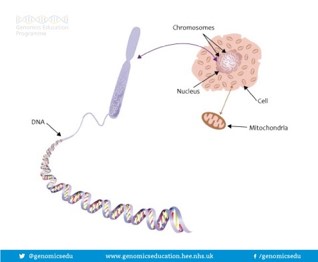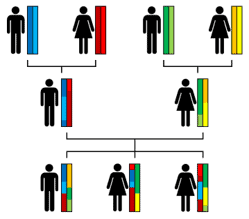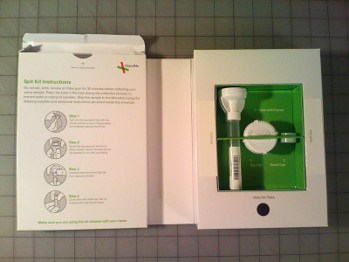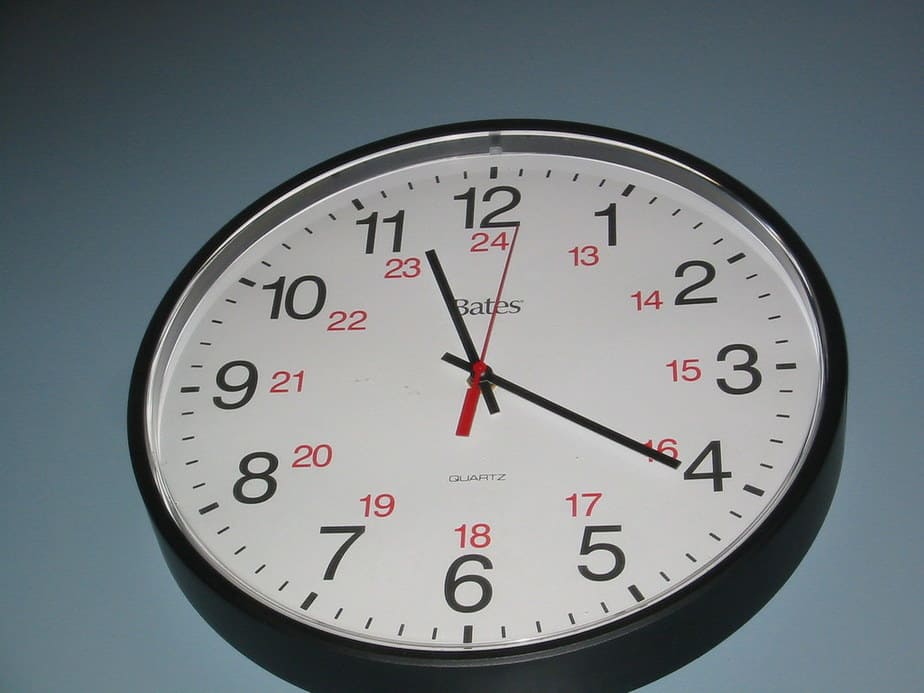Table of contents
Contrary to what you might have heard about DNA testing, the process for the consumer is relatively quick and easy. Exactly how long does a DNA test take? The entire process, from purchasing, to sample collection, to receiving your results, can be done within a reasonable time. Plus, most testing can be done completely from the comfort of your own home.
If you plan to take a DNA test and you’re wondering how long it will take, you’ll find answers in this article. You’ll also learn some interesting facts about DNA tests and the companies you should patronize if you want a reliable result as quickly as possible.
3 Things you should know before taking a DNA test
Before taking a DNA test, there are a few things you should keep in mind before making your final purchase. Although the time it takes to research these topics is highly variable among individuals, it is an important step. By taking time to research the points below, you can ensure that you purchase an affordable, reliable DNA test that answers the questions you are most interested in.
To help in your research, you can read product reviews on many of the most popular DNA tests on our blog and also check out our complete guide to the best DNA test kit and other home tests.
1. Research the best DNA testing companies
There are many DNA companies out there, but unfortunately, not all of these companies are reliable. Some are just after the money and don’t have the required facilities and expertise to provide excellent services. Hence, you must first do some research to understand the company and their practices.
Some of the things to look out for is how long they’ve been offering DNA testing services and their reputation. One of the most useful ways to accomplish this is to read their most recent customer reviews to see which companies are highly recommended and what past customers have to say about their experience.
While many DNA testing sites have dedicated review sections, these ratings tend to be on the positive end. Therefore, if the product is also available on third-party sites, such as Amazon, it is often more useful to read those customer reviews, which tend to be more honest and less biased.

Other general questions you should look out for:
- Privacy. What are their privacy policies? Is there any recent news concerning things like data breaches? How is your personal information handled?
- The price. How much is their DNA test? Is this the cheapest and most reliable? Are there additional fees such as laboratory fees?
- Testing process. Will you have to visit their company to do the test or can you complete everything from your home?
- Timing. How long does it take before they process your result? (Covered in this article)
Basically, before you take a DNA test, you should know the company you’re dealing with well enough to make an informed decision.
2. Decide the suitable DNA type for you
There are different types of DNA kits. Before you take a DNA test, you should know which test will best answer the genetic questions you have.
There are three types of DNA testing — the Y-chromosome or Y-DNA, mitochondrial or mtDNA, and autosomal DNA. Each of these tests provides different information.

The Y-DNA and mtDNA tests are specific to either the paternal or maternal lineage. They are most often used to perform ancestry DNA tests to help individuals learn more about their ancestors – where they lived and what ethnicity they were. Y DNA is found in the nucleus while mtDNA is in the mitochondria.
If you are a male and have questions about your paternal lineage, such as knowing which country or tribe your great-great-great-grandfather came from or your susceptibility to a particular disease based on the gene you inherit from your paternal line, the Y-DNA is suitable for you. This is because the Y-chromosome is only transferred from father to son. Therefore, if you have questions about your maternal line, the Y-DNA test cannot help you.
Both males and females can take the mitochondrial or mtDNA test to answer your maternal line questions. This is because mitochondrial is transferred from mother to child and contains information about your maternal lineage.
To cover genes you share with both your mother and father, you should take the autosomal DNA.

An autosomal DNA test decodes all DNA that is not a Y chromosome or mitochondrial DNA. It is most useful for answering nearly any question you have about your overall genetic composition, including predisposition to disease and origin of traits.
3. Know how to interpret the result
What is the essence of doing a test if you can’t understand the result? Before purchasing a DNA test, it is often useful to look at sample reports and know the kinds of interpretation performed. The kind of test you take determines the type of result you will get. Each of these results has its respective interpretation.
For instance, in the case of a paternal dispute about who the father of a child is, the result should indicate a 99.9% compatibility with the father and 0% with the other man.
Other reports, such as those provided by Nebula Genomics for our 30X Whole Genome Sequencing tests, use a polygenic score to create a type of weighted average things like disease type and trait analysis. We use a combination of your alleles known to be associated with a particular trait to give you an overall snapshot of your genetic chances of acquiring that trait.
How long does it take for a DNA test result?
The time required to perform a DNA test and prepare your result depends on the company you patronize and the kind of DNA testing you do. However, most laboratories usually process the test and get the DNA result ready between 3 to 12 weeks, counting from the day they receive your sample.
The general DNA testing process
Taking a DNA test at home requires a relatively simple process. Most times, you don’t even have to be in the laboratory to do the test. You can order the test kit online, collect your sample, and mail the sample to the DNA lab.
In the laboratory, your DNA will be extracted from the biological sample. The scientist will amplify and analyze the DNA using a baseline of genetic markers. Once this is done and your result is ready, they may provide you with results via your email or secure online portals.
Ordering the DNA test
Some DNA tests can be purchased from local retail stores, such as 23 and Me. In these cases, you can purchase and obtain your test immediately. Most other at home DNA tests can be purchased online. In this case, standard shipping times apply from the time you make your purchase. In the United States, this is typically 3-10 business days from the time your order is processed.

Collecting the DNA sample
Collecting your sample is one of the quickest parts of the DNA test. It is recommended that you first read the directions carefully in order to collect a sample able to be analyzed and avoid contamination. Any mistakes in sample collection may delay your result or lead to the sample being unreadable. Sample collection is normally performed as either a mouth swab (buccal swab for cheek cells) or saliva sample – both take only a few minutes.

Once you have collected your sample, you will send it back to the lab immediately in a prepaid mailing envelope. Most of these return envelopes provide overnight or next day expedited shipping.
Waiting for the result
How long does a DNA test take to come back? The processing times displayed on a company’s website estimate the time it takes to process the results AFTER the cheek swabs or saliva samples are received by the lab. Processing times vary greatly between companies and much of the variety has to do with how much analysis is performed. Generally, companies tend to promise results anywhere from 3-12 weeks.
To summarize:
- Ordering your test = 3-10 business days
- Collecting your sample = a few minutes
- Mail your sample to the lab = 1-2 days
- DNA processing = 3 – 12 weeks
TOTAL time = 3.5 – 14 weeks
Note that most of the variety comes from different DNA processing times between companies.
Usually, home paternity test kits take less time to process, depending on the company. Legal paternity tests must be performed at on-site labs and these tests are often processed in 2-5 days. Non-invasive prenatal paternity tests are also an option if time allows. These tests take between 10-12 working days.
How long does a DNA test take at the hospital?
Some cases may warrant an urgent need for the result. An example of such is DNA paternity testing where the mother want’s to know the father of a child before adding a surname to the birth certificate. Other parentage testing instances may also require the need to determine the identity of a child’s biological father quickly. For instances like this, you’ll notify the DNA laboratory about the urgency of the result.
How long does it take to process a DNA test? Testing laboratories will need DNA samples from the mother, the child, and the paternal DNA from any alleged father. Other than obtaining these samples, hospital labs can perform the test using expedited methods to hasten the turnaround time. In most hospitals, they can get your result ready within a few days. If the lab is not busy, it may even be possible to receive results in as little as a few hours.
Genetic tests can also be performed before a baby is born through collecting a sample of the mother’s amniotic fluid and the DNA samples of the alleged fathers. DNA analysis is then performed on these samples.
How long does a court ordered DNA test take? It should be noted that most at home paternity tests for determining a biological relationship tests for peace of mind and informational purposes only. An legal paternity test, performed in a hospital or clinic, must be conducted in order to settle legal disputes such as child support. These test typically take hours to days.
How long does an ancestry DNA test take?
Having your DNA tests performed on time is not enough. Ancestry tests in particular must be performed appropriately to have a reliable result. Some of the most well known companies for family history research include the AncestryDNA test and 23 and Me. Both DNA testing companies are reputable in having large databases (10-18 million people) to help you track down family members (DNA matching) and build your family tree. They typically prepare your results in 6 to 8 weeks. Remember, this time begins when the samples arrive at the lab.
FamilyTree DNA (FTDNA) is another DNA testing company that specializes in Y DNA and mtDNA analysis. With this company, you can expect to have your result ready between 4-6 weeks. You’ll receive an email notification once your result is ready. Their testing process is also easy, and above all, their result is reliable.
Nebula Genomics
Nebula Genomics is a reliable DNA testing company that decodes 100% of your genome with processing times on par with the well known DNA companies that only decode 0.02%. Specifically, we process DNA samples and get results ready within eight weeks from the time we receive the DNA sample.
At Nebula Genomics, we use 30X Whole Genome Sequencing to decode 100% of your DNA. The result is that we produce 10,000 times more data than other DNA tests like 23andMe and AncestryDNA that only decode 0.02% of your genetic makeup. Additionally, we give deep ancestry insights into Y-DNA and mtDNA analysis. You can also upload your raw data and receive our reports for free!
Dealing with us means you’ll have access to our genome exploration tools, where you will find answers to your DNA questions. Our Whole Genome Sequencing data is of the highest quality and can be used by physicians and genetic counselors to help provide medical advice and make future medical decisions.
You can also explore the Nebula Research Library with weekly updated reports to continue to learn more about your genetic makeup throughout your lifetime. We are also a leading privacy-focused personal genomics service; hence, you can trust us with the privacy of your data. Our mission is to make direct-to-consumer DNA testing secure.
